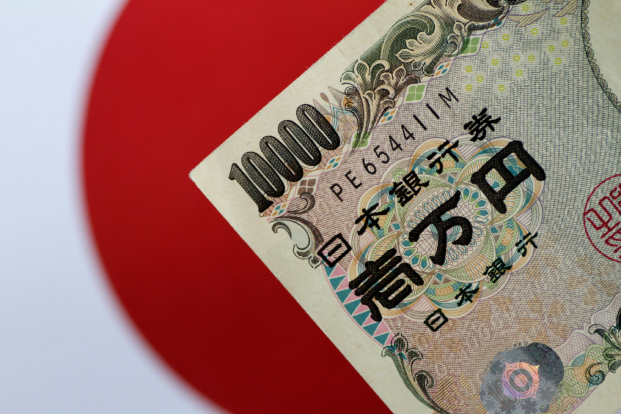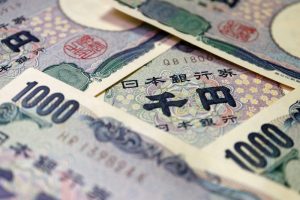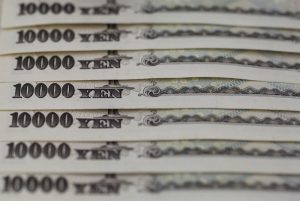The Japanese yen plunged to a 24-year low, prompting a warning from Bank of Japan Governor Haruhiko Kuroda about the negative impact on the economy.
“The yen’s recent sharp declines are negative for Japan’s economy and therefore undesirable, as they make it hard for companies to set business plans,” Kuroda told parliament on Monday, shifting away from his long-held stance that the currency’s weakness was generally good for the export-reliant economy. “The BOJ will communicate closely with the government, and scrutinise the impact currency moves have on the economy and prices,” he added.
The yen slid past the psychological 135 line to levels against the US dollar last seen in October 1998.
The gap between Japanese and US benchmark yields widened following shock US inflation data on Friday, which pushed US Treasury yields higher.
Policy Divergence
The dollar rose as high as 135.22 yen, its most since October 1998, having gained for each of the past seven sessions, as the policy divergence between hawkish central banks overseas and the dovish Bank of Japan (BOJ) becomes ever more apparent.
Central banks’ efforts to raise interest rates to curtail inflation will remain in focus this week. The Federal Reserve and the Bank of England are expected to raise rates at their meetings and there is a chance the Swiss National Bank will do the same.
Little change is expected from the BOJ, however, which said on Monday it would buy 500 billion yen ($3.70 billion) of Japanese government bonds on Tuesday as part of its policy to keep benchmark 10-year yields within 0.25 percentage points of its 0% target.
The scale of the move has repercussions for the domestic economy as yen-based import prices are surging at a record annual pace and pressuring households’ finances.
Japan’s top spokesperson warned the markets on Monday that Tokyo is concerned about the sharp declines in yen and is ready to respond appropriately to arrest the slide in the domestic currency if needed.
“It’s important that currency rates move stably reflecting fundamentals. But there has recently been sharp yen declines, which we are concerned about,” Chief Cabinet Secretary Hirokazu Matsuno said in a regular news conference.
“We are ready to respond appropriately as needed, while communicating closely with each country’s currency authorities,” he said. Matsuno declined to comment on whether Tokyo would intervene to stem the sharp yen slump.
The yen briefly rallied late on Friday when Japan’s government and central bank said they were concerned by its recent sharp falls, a rare joint statement seen as the strongest warning to date that Tokyo could intervene to support the currency.
‘No Clear Thresholds’
But the currency lost momentum as the dollar strengthened after Friday’s US inflation data reinforced market expectations the Federal Reserve will raise interest rates aggressively to combat surging inflation.
Barclays analysts said they expect dollar/yen to trade between 131 and 136 this week and noted “there are no clear thresholds above (the 2002 high) other than the round figures of 136, 137 and 138.”
The benchmark US 10-year yield touched 3.2% on Monday morning, having gained nearly 12 basis points on Friday after US inflation beat expectations, driving bets that the Fed will have to hike rates even more aggressively.
The US two-year yield extended Friday’s gains to touch 3.159% in early trade, a fresh 14-year high.
Markets See Fed Hike Rates By 125bps
Market pricing indicates roughly a two-thirds chance of at least 125 basis points of hikes across the Fed’s next two meetings – on Tuesday and Wednesday this week and in July – according to the CME’s FedWatch tool.
The Barclays analysts said they were expecting a 75 basis point hike from the Fed’s two-day meeting this week.
Expectations of a more hawkish Fed are pushing up the dollar against more than just the yen. The dollar index, which tracks the greenback against six peers was 0.3% higher at 104.52, its highest in four weeks.
The euro was languishing at $1.0483, down 0.3%, and sterling was 0.32% lower at $1.2275, taking little support from exceptions the Bank of England will raise rates on Thursday, which would be its fifth hike since December.
The Swiss National Bank also meets Thursday, and a 25 basis point hike is on the cards.
The risk-friendly Australian dollar lost 0.6% and fell to as low as $0.6998 a three and a half week low, as fears about the impact of higher rates drove investors to perceived safer assets.
Similarly bitcoin, which also trades like a risk asset suffered over the weekend. The world’s largest crypto currency was around $26,400, its lowest in a month. A fall past May’s low of $25,400 would be bitcoin’s lowest since December 2020.
- Reuters with additional editing by Jim Pollard
This report was updated with additional information.
ALSO READ:
Japan’s Suzuki Stays Silent on Forex Intervention as Yen Slides
No Good or Bad Yen Exchange Rates, Japan Official Says
Japan Finance Minister Makes Strongest Warning On Yen Slump
























